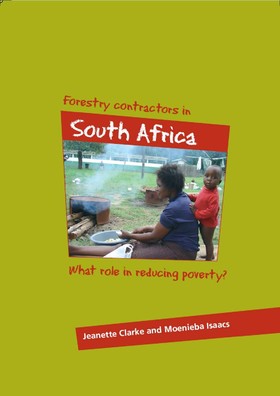Forestry contractors in South Africa: what role in reducing poverty?

South African large-scale forest industry has outsourced many operations to increase flexibility and cut costs, especially costs associated with full-time employees. This study presents a national overview and seven case studies to investigate how forestry contracting contributes - and could better contribute - to reducing poverty through providing either jobs or enterprise opportunities. Jobs provided by forestry contracting are not able to lift the vast majority of forestry workers, mainly women, out of chronic poverty, or prevent them from getting poorer. Enterprise opportunities are limited by contractors’ inability to claim an equitable share of the value chain because they are too dependent on large-scale grower-processors. The study suggests ways to increase rates for contract work, support more effective collective action by contractor enterprises and employees, provide better safety nets for workers, and implement enabling national charters, standards and legislation.
Cite this publication
Available at https://www.iied.org/9558iied